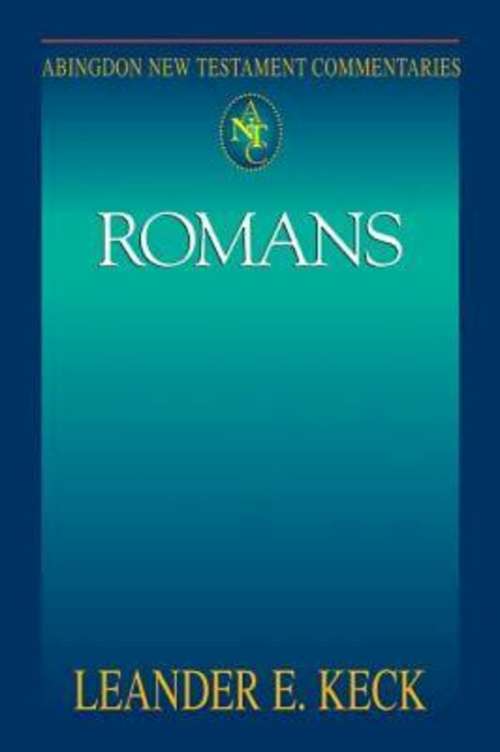
Abingdon New Testament Commentaries: Romans (Abingdon New Testament Commentaries)
Synthetic audio, Automated braille
Summary
Like widely differing siblings raised by the same parents, each letter produced by Paul has its own distinguishing character. For the historically minded critic, each letter’s unique traits provide important clues for detecting the circumstances in which Paul wrote it… as well as what he hoped to achieve with it. Scholars assume that by examining the content of the letter (the “answer”), they can infer the readers’ situation that Paul is addressing (the “question”)--a method sometimes called “mirror reading.” In the case of Romans, however, both the particular traits and the overall content are so unusual that scholars continue to debate why Paul wrote precisely this letter and what he hoped to achieve by it in Rome."So begins Leander Keck's seminal work on the New Testament book of Romans. Keck asserts that because Romans is part of the New Testament, we can compare it with the other letters ascribed to Paul, as well as with what Acts reports about his message and mission. But the first readers of Romans had only this letter; they could compare it only with what they may have heard about him. While this commentary does from time to time compare Romans with what Paul had said before, it concentrates on Romans itself; what Paul says in this text should not be conflated with--nor inflated into--what he thought comprehensively, though it is essential to understand that as well."We do not really need another major commentary [on Romans] that loses us in the minutiae of word studies, literary parallels, sociological and rhetorical hypotheses; we have such in plenty. The Abingdon series, however, by its limited size, forces the contributor to focus on the primary task of the commentator: to clarify the meaning (intended or potential) of the words of the text and to provide some basic reflection on its/their continuing significance. And that is where Keck excels." - James D. G. Dunn, Review of Biblical Literature 04/2006.